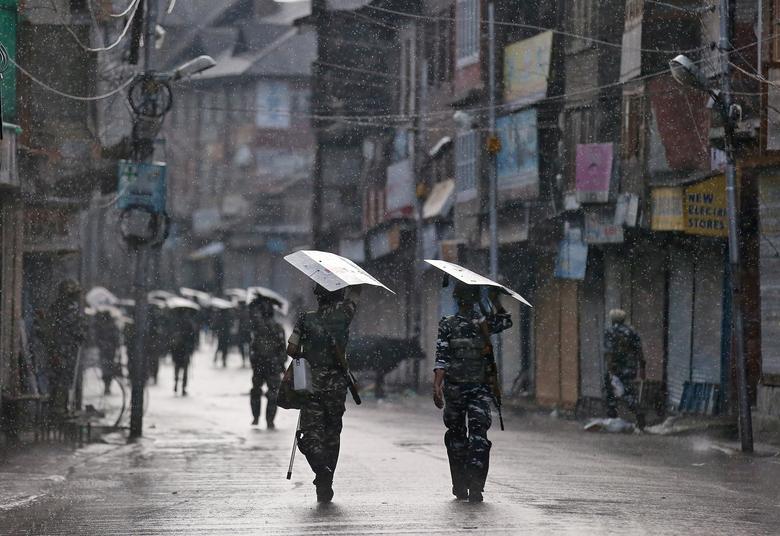Srinagar: Anger is mounting in Kashmir against the government’s decision to revoke the special status of the Muslim-majority region, residents and officials said, although authorities eased some curbs to allow people to offer Friday prayers.
Seeking to tighten its grip on the region, which is also claimed by neighbouring Pakistan, the Centre this week scrapped the state’s right to frame its own laws and allowed non-residents to buy property there.
Television images showed dozens of people walking on the streets of Srinagar, the region’s main city, for the first time this week to offer prayers at mosques guarded by police.
“Every time we have embraced India, they have cut our throats,” read a handwritten poster at one mosque, which also urged Kashmiris not to sell land and to hold protests after Eid prayers Monday.
Leaders in Kashmir had warned that scrapping the special status would be seen as an act of aggression against the people of the Himalayan state, where more than 50,000 people have died in a 30-year revolt against Indian rule.
There have been no major protests, barring sporadic instances of stone-throwing in the last few days, but several residents and a police official told the media that resentment against the decision was building.
“There is a lull right now … the situation can go out of control,” said the police official, who declined to be named as he was not authorised to speak to the media.
Policemen in riot gear were posted every few metres around the Jama Masjid mosque in Srinagar’s old quarter. One officer said he faced regular attack from young people throwing stones.
In New Delhi, however, Foreign Ministry spokesman Raveesh Kumar told a news briefing that Kashmir was calm and the inconvenience expressed by its people was “very temporary”.
He told the media, “Just outside Srinagar things have really come back to normal.”
Kumar added, “People are going about their business, vehicles are plying normally. If we are confident of maintaining the law and order, I think those restrictions will be relaxed, I’m quite sure.”
National Security Adviser Ajit Doval met the Jammu and Kashmir Governor Satya Pal Malik and “expressed satisfaction regarding the overall situation, which is, by and large, peaceful,” the state government said in a statement.
In a narrow alley behind the Srinagar mosque, 32-year-old Tariq Ahmed warned of a backlash against the Indian government once it relaxed the curbs on movement in the city. “If they (authorities) have used force on unarmed Kashmiris, we will also react with force,” said Ahmed, a university worker.
“We have no faith in the Indian government. They should let us protest. Otherwise, the only option is armed struggle.”
